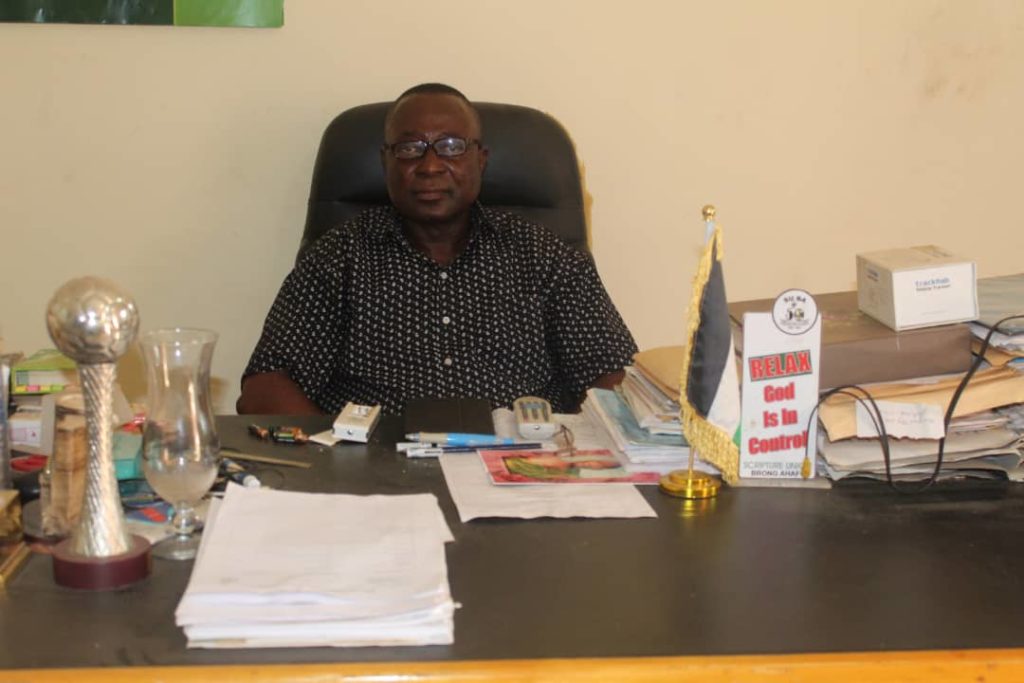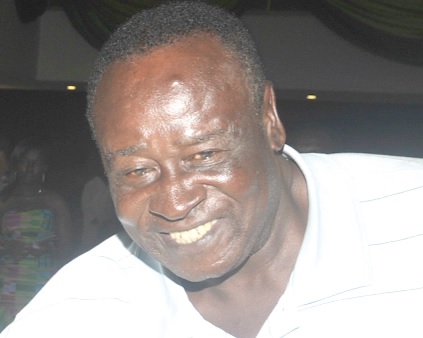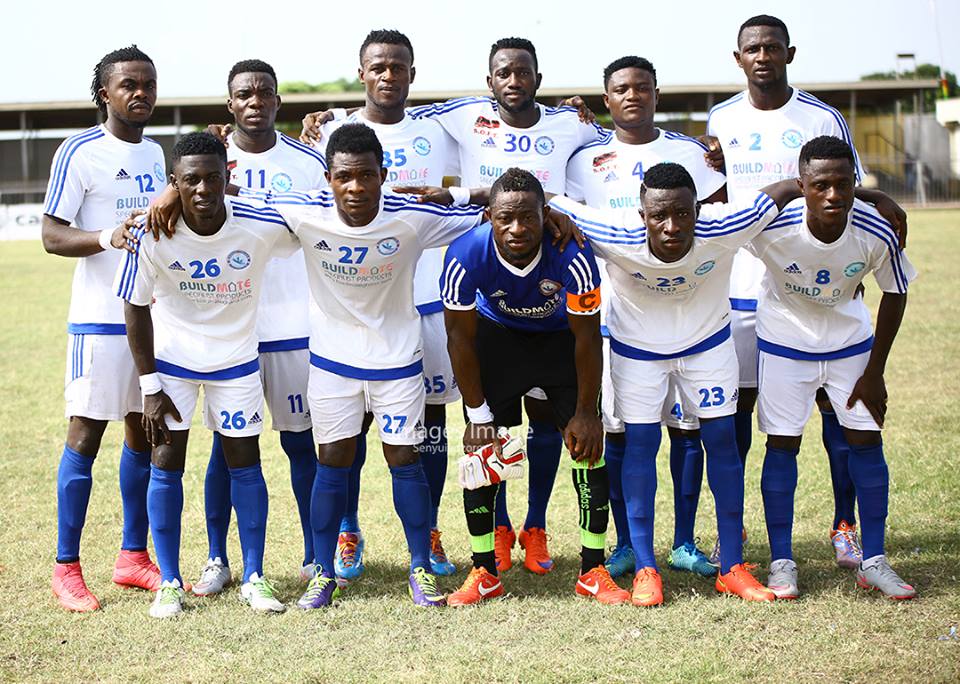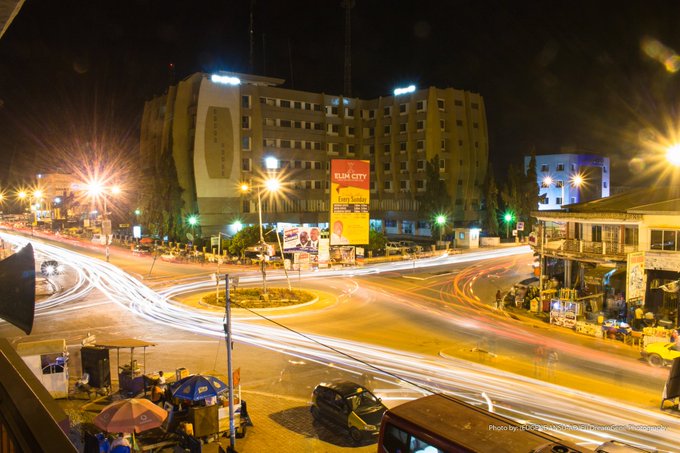|
Getting your Trinity Audio player ready...
|
For a capital, Sunyani is rather mild — just the way I like it, in fact. Quietly, the city’s residents go about their activities all week, with a spike mainly seen on Wednesdays — the designated ‘market day’ — when traveling traders bring their wares and noise.
Something else rouses Sunyani, though; something internally generated. Here, you’d find a rivalry between two clubs, B.A United and Tano Bofoakwa, that rivals any you’d find elsewhere in Ghana. True, games between Asante Kotoko and Hearts of Oak — Ghana’s most successful clubs — set our pulses racing like no other fixture does, but those adversaries are based in cities hundreds of kilometers apart.
Both United and Bofoakwa call Sunyani home, though, and — sharing tenancy of common grounds — don’t really have to make an extra effort to get into each other’s faces. They’ve co-existed for almost six decades and have challenged each other for nearly as long. When the pair meet, Sunyani catches a fire whose embers never really die until the next encounter.
In recent times, things have cooled somewhat, with the two — once regular participants in the Ghanaian top-flight — dropping to the lower rungs of the pyramid. Their competitive battles have been fought in Ghana’s Division One League, but this weekend’s MTN FA Cup clash breathes some prominence into the derby, even if only for a day.

Not quite a year ago, I set out to find more about these two sides and their relationship over the years. Asking around, I was told that there wasn’t a man more qualified to recount those tales of old than Mr. Augustine Asante, then in his 13th year as Chairman of the Brong Ahafo Regional Football Association (RFA). Six months before being succeeded by the younger Ralph Gyambrah, Asante invited me to his office, located on the premises of the Coronation Park, an arena that owes much of its history to the clubs I’m here to inquire about.
Asante’s working space is as modest as it gets. The rosary hanging from one of the walls and a calendar tell of his Catholic faith, while a couple of citations in plain view celebrate his years of distinguished service as a football administrator. On Asante’s desk sits a miniature Jordanian flag, a souvenir from his trip to the 2016 Fifa U-17 Women’s World Cup where, under his watch as Management Committee chairman, Ghana’s Black Maidens defied financial constraints to reach the quarter-finals.

In his own playing days, from 1973 to 1981, Asante represented United before settling overseas (not for footballing reasons), even serving as captain. He’d return years later, taking up separate appointments as team manager and head coach. Obviously, he knows United well — and, surely, Bofoakwa too.
“There came a time in the sixties when Ghana’s top tier created room for eight new clubs, and the Brong Ahafo Region was asked to present one,” he recounts, but not before issuing a disclaimer that much of what he narrates has only been handed down orally.
“At the time, two main clubs existed in Sunyani — Hasaacas and Standfast — and these were blended in birthing Brong Ahafo United,” Asante says.

The newcomers, though a few years late to the party, wasted no time in making their presence felt. Their debut season, 1961/62, saw them finish just behind Hearts of Oak and Asante Kotoko. That success set the tone for United to take up a place as the land’s third force, but it also sparked a hunger for more from where the club came; cue the formation of Brong Ahafo Stars. Unlike in Merseyside or North London where the younger club eventually became the stronger, Stars — from the off — seemed destined to be in United’s shadow. Its players, some of whom were acquired from outside Sunyani and others from the pieces of the Standfast-Hasaacas merger, were hardly as good or as popular.
The 1962/63 season was Stars’ maiden campaign and, unsurprisingly, they failed to have the same instant impact as United who continued to be reckoned among the league’s best. In 1966, the year when independent Ghana experienced its first switch in political power — a violent one, too, courtesy a coup d’etat that overthrew Dr. Kwame Nkrumah — United even found themselves top of the table before the season was prematurely terminated, leaving fans of the club ruing what might have been until this day.

The seventies would bring a shift, however. Tables turned as Stars — hitherto firmly rooted in the division’s nether regions — emerged as Sunyani’s dominant team. A change of name in 1968 to Tano Bofoakwa — inspired by one of Ghana’s chief rivers that serves Brong Ahafo and meanders even into neighboring Ivory Coast — might have had something to do with it, but Asante points out another factor that swung the pendulum.
“The club’s administrators — most of whom weren’t natives of the town — reinforced its new identity with solid recruitment, bringing in players mostly from outside Sunyani,” he explains. “It’s why Bofoakwa became known as the club of choice for settlers, while the locals largely rooted for United.”

Among the players who helped transform Bofoakwa’s fortunes were Kwasi Owusu, regarded by some historians — and by himself — as Ghana’s most prolific scorer of all-time; and Dan Owusu, a three-time topscorer in the league during the mid-70s. From 1972 to 1975, Bofoakwa recorded three Top 4 finishes but, by the end of that decade, had returned to their old disappointing selves. Relegation first came in 1979, and although they returned before long, Bofoakwa sunk again in 1985 — this time with United in tow.
For both, it was the beginning of the end. They’d resurface every now and then but could do little to remain competitive, although Bofoakwa, in 1983, would match United’s FA Cup final run of 1975 (both lost to Great Olympics, incidentally). Neither was a member of the inaugural professional league in 1993/94 — actually, that dawn only brought more misery, as Asante notes.

“The two clubs had little in the way of professional management, making the transition from an era when football was merely a pastime to the new business-minded age quite difficult.
“Players no longer joined clubs for free, and paying huge transfer fees proved tough for two teams which, until then, had existed for the entertainment of their fans and little more.”
For years, players from all over Ghana’s Brong Ahafo Region — now split into three parts — could only join United or Bofoakwa if they wanted to make a name at the highest level. But then sprung the likes of Arsenal and Chelsea in nearby Berekum, Aduana in more distant Dormaa Ahenkro, Bechem United, etc — clubs whose very existence sucked the life out of United and Bofoakwa. Footballers and fans no longer had to travel all the way to the regional capital to enjoy the sport in all its glory; to their own hometowns, Premier League football — a luxury neither United nor Bofoakwa guaranteed, anyway — came.

Even better, some of those newer clubs have accomplished feats the Sunyani duo never managed in their prime, winning league titles (two for Aduana, one for Chelsea) and the FA Cup (Bechem), while also enjoying continental campaigns with varying levels of success. Not that it’s altogether a bad thing, though, argues Asante.
“The emergence and rise of new clubs throughout the region may have dried the talent pools for cash-strapped United and Bofoakwa,” he concedes. “However, it also offers more opportunities for young footballers all over the place.”
Even so, the two fallen giants still enjoy significant support in and around Sunyani, especially United which — in Asante’s opinion — boasts “the third largest fanbase” in the country. While there may be no statistics to back up that claim, he might have a point.

See, for the last eight years, I have been a resident of the region. In that time — as a football fan and as a journalist — I’ve seen some games at stadia and viewing centers. Only last week, Aduana hosted Asante Kotoko in Dormaa on Week 11 of this season’s GPL and, when the last-gasp winning goal went it, chants of “B.A! B.A! B.A!” erupted, bringing the match to a rapturous climax.
And just five years ago, after Ghana skipper Asamoah Gyan — from the Brong town of Wenchi — snatched a similarly late winner when the Black Stars badly needed one against Algeria at the Africa Cup of Nations, another round of ‘B.A’ chants rung out in Sunyani where I watched the game. United weren’t playing on either occasion, of course, but you get the point.
Come Sunday, though, they will cross swords at the Coronation Park with old foes Bofoakwa, in what should be the pick of the FA Cup’s Round of 64 games. It would be a rare highlight for both, a throwback to joyous times and, hopefully, an inspiration to soar together once again — someday.
NY Frimpong — Daily Mail GH





